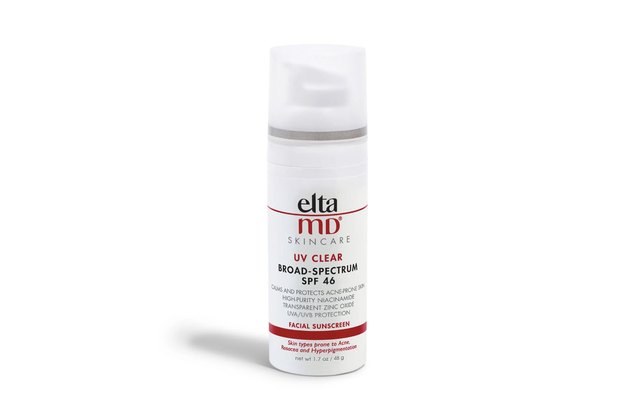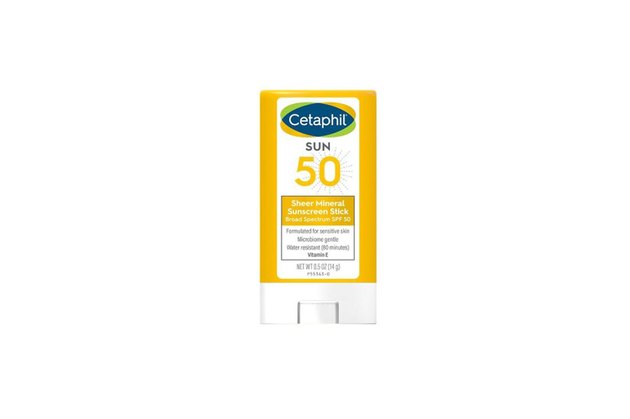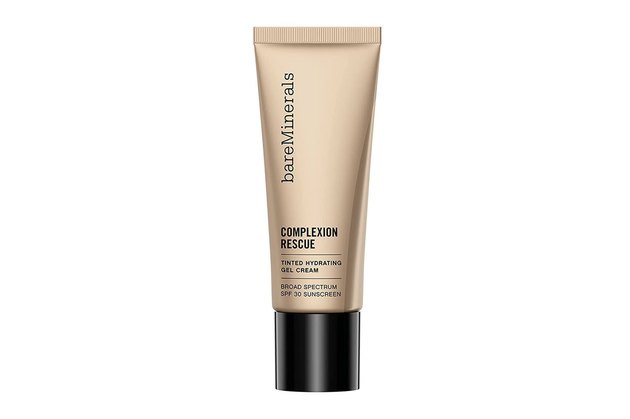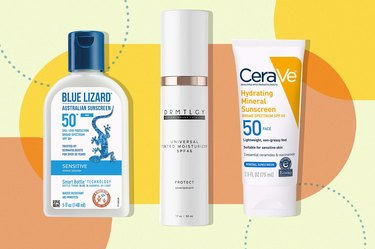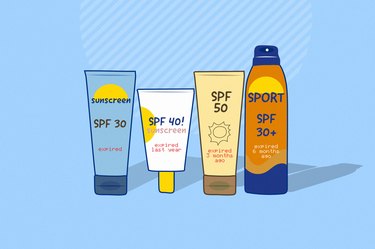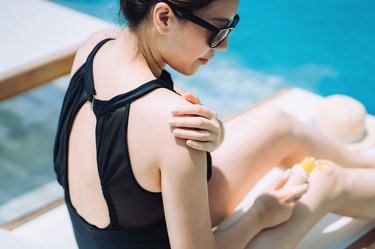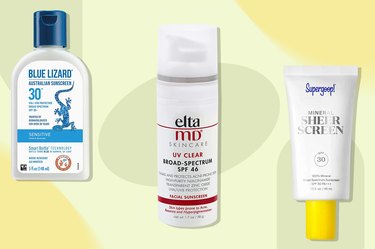
If you have sensitive skin, you're probably very cautious when it comes to what type of skin care products and ingredients you use. After all, sensitive skin tends to be more prone to redness, inflammation and irritation overall than other skin types, says Marisa Garshick, MD, dermatologist at Medical Dermatology & Cosmetic Surgery in New York City.
As with any skin-care product, sunscreen contains a bevy of ingredients that can cause irritation in someone with sensitive skin.
Video of the Day
Video of the Day
"Certain ingredients in sunscreens, be it active ingredients, fragrances, dyes or preservatives, may be more commonly associated with skin reactions," says Brendan Camp, MD, a Manhattan-based dermatologist at MDCS Dermatology. "Familiarizing yourself with these before making purchases — and becoming comfortable reading ingredient lists — may help avoid skin reactions."
How We Chose
We chatted with dermatologists, who broke down the most important features of sunscreen for sensitive skin. Our top picks are based on their criteria, including:
- SPF
- Ingredients
- Consistency
- Reapplication
- Cost
Find more information on how we choose and cover products here.
The Best Sunscreens for Sensitive Skin
- Best Overall: EltaMD UV Clean Broad-Spectrum SPF 46 ($38.95, Amazon)
- Best Mineral: CeraVe Hydrating Mineral Sunscreen SPF 50 ($14.97, Amazon)
- Best for Face: Supergoop Mineral Sheerscreen ($38, Amazon)
- Best Stick: Cetaphil Sheer Mineral Sunstick ($7.80, Amazon)
- Best Tinted Moisturizer: bareMinerals Complexion Rescue Tinted Hydrating Gel Cream SPF 30 ($37, bareminerals.com)
- Best for Working Out: Bliss Block Star Invisible Daily Sunscreen ($15.75, Amazon)
- Best Water-Resistant: Blue Lizard Australian Sunscreen ($14.98, Amazon)
1. EltaMD UV Clear Broad-Spectrum SPF 46
2. CeraVe Hydrating Mineral Sunscreen SPF 50
3. Supergoop Mineral Sheerscreen
4. Cetaphil Sheer Mineral Sunstick
5. bareMinerals Complexion Rescue Tinted Hydrating Gel Cream SPF 30
6. Bliss Block Star Invisible Daily Sunscreen
7. Blue Lizard Australian Sunscreen
What to Look for in a Sunscreen for Sensitive Skin
Here are some features dermatologists recommend looking for when shopping for a sunscreen for sensitive skin.
1. SPF
The American Academy of Dermatology recommends the use of sunscreens that have an SPF of at least 30. It's worth mentioning, however, that a higher SPF doesn't mean you can reapply less often. Most sunscreens require you to reapply every two hours minimum, although you should reapply more often if you're swimming or sweating a lot.
2. Consistency
Richard Torbeck, MD, New York City-based dermatologist, recommends a cream or lotion consistency over spray to allow for better coverage.
"Coverage needs to be on the thicker side, or the actual SPF may not be what is stated on the bottle," he says.
3. Mineral vs. Chemical
Mineral sunscreens, such as those with active ingredients like titanium and zinc oxide, sit on top of the skin and reflect UV radiation off the skin instead of being absorbed, Dr. Camp says.
"Mineral sunscreens are thought to be less likely to cause skin irritation in those with sensitive skin than chemical sunscreens," he says.
Chemical sunscreens include ingredients such as avobenzone, homosalate, octinoxate, octisalate, octocrylene and oxybenzone. If any of these are on the label, it's probably best to avoid that sunscreen if you have sensitive skin.
4. Other Ingredients to Look Out For
Some sunscreens include other skin care ingredients like hyaluronic acid, shea butter, vitamin E and niacinamide, which can provide benefits for those with sensitive skin.
"Hyaluronic acid is a humectant, meaning it helps moisturize skin by helping it retain water molecules, shea butter helps hydrate skin by preventing it from drying out, vitamin E is an antioxidant that can help protect skin from the damaging effects of prolonged sun exposure and niacinamide is a calming agent that reduces redness, swelling and inflammation," Dr. Camp says.
On the other hand, avoid sunscreens with chemical ingredients (as we mentioned above) and added fragrances, as these can be irritating to the skin.
Is this an emergency? If you are experiencing serious medical symptoms, please see the National Library of Medicine’s list of signs you need emergency medical attention or call 911.
